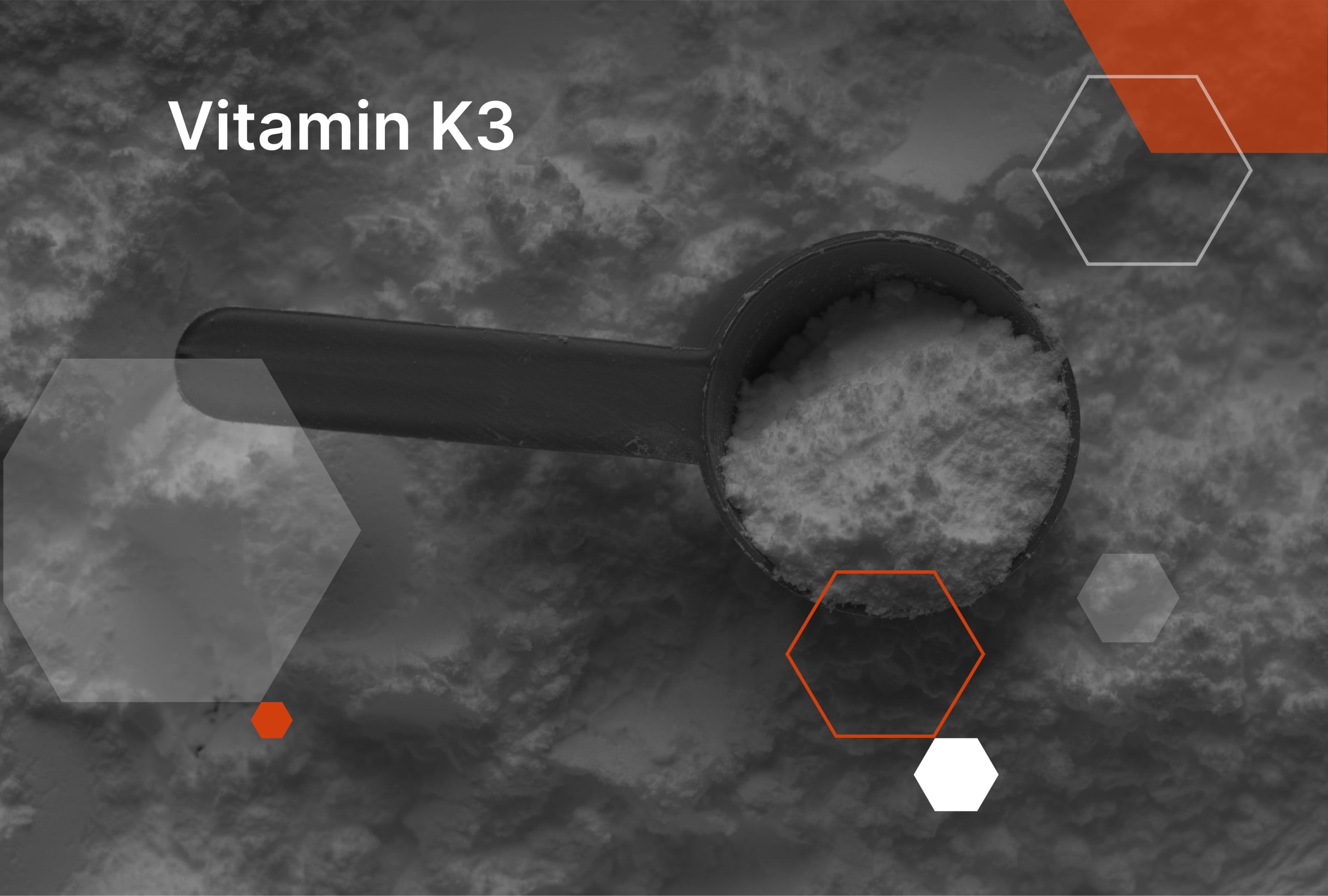Kemiex is an all-in-one market information, purchasing and sales platform for animal and human nutrition raw materials. In the following series of articles, we will explain the functions and uses of products that can be found in the Kemiex marketplace. On this occasion, we are going to explain the benefits of Vitamin K3 or Menadione:
What is Vitamin K3 used for?
Vitamin K3, also known as Menadione, is a synthetic form of Vitamin K that is used as a supplement. It is not as commonly used as other forms of Vitamin K because it can cause toxicity at high doses and has limited effectiveness compared to other forms of Vitamin K. Unlike Vitamin K1 and Vitamin K2, which are found naturally in foods, Vitamin K3 is not found in significant amounts in any natural food sources. It is often used in animal feed and sometimes in human supplements, but the use of Vitamin K3 in humans is controversial due to its potential adverse effects.
What are the main benefits of Vitamin K?
It’s important to note that Vitamin K3 or Menadione is not a recommended source of Vitamin K for humans or animals, and its use as a dietary supplement is controversial. Vitamin K3 can cause toxicity, especially in high doses, and it can also interfere with the action of other vitamins. The recommended form of Vitamin K for human consumption is Vitamin K1 (Phylloquinone) and Vitamin K2 (Menaquinone). Vitamin K1 is found in green leafy vegetables like spinach, kale, and broccoli, while Vitamin K2 can be found in animal products like eggs and dairy, as well as fermented foods like natto and some cheeses. However, the main benefits of Vitamin K for humans include:
1. Supports Blood clotting:
Vitamin K plays a crucial role in the process of blood clotting, which helps to prevent excessive bleeding.
2. Helps Cognitive function:
Vitamin K has been shown to have a protective effect on cognitive function and may help to reduce the risk of age-related cognitive decline.
3. Improves Bone health:
Vitamin K helps to regulate calcium levels in the body, which is important for maintaining strong and healthy bones.
4. Helps Cancer prevention:
Some studies have suggested that adequate Vitamin K intake may help to reduce the risk of certain types of cancer, particularly prostate and liver cancer. However, more research is needed to fully understand the relationship between Vitamin K and cancer.
5. Supports Heart health:
Studies have shown that adequate Vitamin K intake may help to reduce the risk of cardiovascular disease by improving blood vessel health and reducing oxidative stress.
Which foods are the main sources of Vitamin K3?
Vitamin K3, also known as Menadione, is not a commonly found vitamin in food sources and is not considered essential for human health. It is mostly synthesized in the liver or can be taken as a dietary supplement. As a result, there are no specific food sources that are significant contributors of Vitamin K3 in the human diet. It’s recommended to consult with a doctor or a registered dietitian before taking any supplements.
Recommended daily intake (RDI) of Vitamin K3
The recommended daily intake (RDI) of Vitamin K3 for humans has not been established as it is not a commonly used or recognized vitamin. Vitamin K3 is not considered safe for human consumption and its use as a supplement is not recommended. It is primarily used in animal feed as a source of Vitamin K for livestock.
Where to buy bulk Vitamin K3 and get market information?
In Kemiex, we offer a safe and private online environment to buy and sell raw materials for the Feed, Food, Vet, and Pharma industries. We also offer market information such as Price Trends, Trade Flows and Market News for all the micro-ingredients of the mentioned industries.
